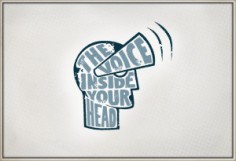Change needs to be enabled and lead, not directed
So how do you do more enabling and leading and less directing; and get others to do the same?
 Most think they know how to manage and lead, yet largely I find most managing through trial and error or application of a single theory or model.
Most think they know how to manage and lead, yet largely I find most managing through trial and error or application of a single theory or model.
Take this statement for instance – Safety management fundamentally means management of the safety system and user experience, not the management of the users. Depending on your answer will depend on how you approach change yet would all of your current actions be congruent to your position? Should they not flex to the context rather than be externally imposed? Does one answer have to be right, or can we conclude they are not both totally wrong?
 One thing I have found that’s a great lever for enabling changing is exposing others to different perspectives and having them be tolerant of people with different or diverse perspectives. It is when we hold fast to one perfect answer and an adversarial mindset that we alienate people (and their perspectives) which cause them then to have to fit in or disengage or even leave!
One thing I have found that’s a great lever for enabling changing is exposing others to different perspectives and having them be tolerant of people with different or diverse perspectives. It is when we hold fast to one perfect answer and an adversarial mindset that we alienate people (and their perspectives) which cause them then to have to fit in or disengage or even leave!
So what is the link between being across more perspectives (about safety, yet also other fields) and the ability to flex your style?
To me, it’s Professional Development, yet put simply; learning. Not just the formal, bum on seat type or the seminar/lecture kind but self-directed learning about topics that interest and influence our workplaces and lives. Narrow and deep or broad and wide, esoteric or practical; new information uses the same brain gymnastics of;
- Disassociation of the existing information you base your decisions in (heuristics or mental models), which is being able to view the existing and new idea side by side
- Review and evaluate the existing information against the new information and together across past experiences, theoretical presumptions and future scenarios for validity and fit
- Integration of the strongest or best fit to your desired end state. This may be a rejection of the new information as not valid or adoption of this information and integration into how we operate moving forward.
 Most of the above happens below the water line (consciousness) and are largely affected by both social and individual factors /bias. To do a quick exercise take the people whom you have the 5 strongest relationships; do you share their propensity to change your mind based on new information or do you tend to feel secure with your understanding of the world and rarely change your stated positions? Likely they will display similar patterns of behaviour to yourself. The same occurs within teams in organisations and entire industries.
Most of the above happens below the water line (consciousness) and are largely affected by both social and individual factors /bias. To do a quick exercise take the people whom you have the 5 strongest relationships; do you share their propensity to change your mind based on new information or do you tend to feel secure with your understanding of the world and rarely change your stated positions? Likely they will display similar patterns of behaviour to yourself. The same occurs within teams in organisations and entire industries.
So how do we get our teams more focused on professional development & learning?
What makes a person stop listening to new music, what tips someone over the edge to rely on the ‘Greatest Hits’?
I’ve seen a strong desire from most that they should participate but seen low engagement through my own strategies such as starting slack communities, working groups, teams etc.
 I don’t know, for now, to be honest. Typically I would say that to combat a lack of participation it would be through visible, felt leadership yet I’m not sure. It does come full circle to my proposed thrust, however; how afraid are we as leaders in safety (not safety leaders) to fail, afraid to show being incomplete or less than what our image or egos are? How many of us are open and transparent to having a coach or taking short courses or watching YouTube or reading in different fields, or even letting people know that ‘we don’t know’ and need to find out?
I don’t know, for now, to be honest. Typically I would say that to combat a lack of participation it would be through visible, felt leadership yet I’m not sure. It does come full circle to my proposed thrust, however; how afraid are we as leaders in safety (not safety leaders) to fail, afraid to show being incomplete or less than what our image or egos are? How many of us are open and transparent to having a coach or taking short courses or watching YouTube or reading in different fields, or even letting people know that ‘we don’t know’ and need to find out?
I’d love to see more people be transparent about this, both within workplaces and social media, to allow it to be more socially accepted and a group norm within our field to be always questioning, and seeking a better answer, map or model.
So to lead off, I’m currently;
- Taking two short courses through Udemy for less than $25 each
- Keep getting a quarter way through Acumen’s (free) Human Centred Design Course
- Have one unit to go on my Post Grad Cert for Project Management through Curtin uni, by the way, I’ve had this hanging over my head for 3 years – it’s tough to finish when you don’t see value in doing the last basic management unit you have an undergrad degree in and you won’t get RPL
- 3 Units to go in Post Grad Diploma in Corporate Governance through Governance Institute
- Re-Reading Ray Dallio’s Principles
- Wanting to start an Integral-Semantics Facilitator’s Certification Training through the Coaching Room
- Working with four small organisations re: RegTech & Innovative Safety Engineering to offer solutions for current industry pain points. Learning about electromagnetic fields, integrating new capabilities into existing SaaS and unearthing better capabilities to structure our data and ways to capture meaningful data
- Continuing to love reading the following writers on LinkedIn – Dr Richard Claydon, Kenneth Mikkelsen, Steven Shorrock, Richard Coleman, Dominic Price, Matthew Little, Kelly Lovely, Dr Susanne Bahn, Cameron Stevens, and Andrew Barret to name a few
 The above is messy, a little less coordinated than I would like (Sorry Ed Batista), yet its real world and works for me. I’m trying to plan dots for the future and build skills so I continue to add value in my role and other roles which are offered into the future. You’ll notice that the above is driven by me, not my organisation, boss or other authority. I firmly believe you don’t wait for others to offer or drive your own career progress; fortune favours the bold.
The above is messy, a little less coordinated than I would like (Sorry Ed Batista), yet its real world and works for me. I’m trying to plan dots for the future and build skills so I continue to add value in my role and other roles which are offered into the future. You’ll notice that the above is driven by me, not my organisation, boss or other authority. I firmly believe you don’t wait for others to offer or drive your own career progress; fortune favours the bold.
Be great to hear others thoughts, plans and how you are enabling others to be better versions of themselves and individually, what you are doing to pursue and seek mastery.